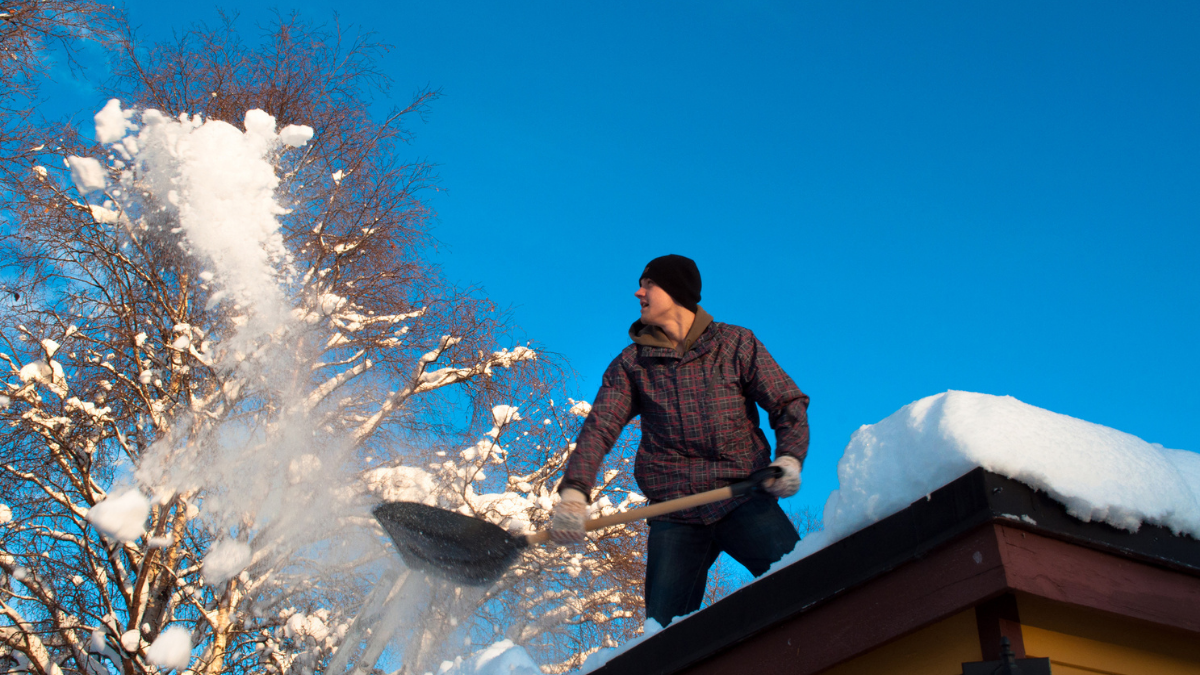Prep your home for winter now before you get too busy with the holidays
Depending on where you are in the world, Jack Frost may have already visited your home. That’s the case for our vice president, Kip Kuroski. When he wakes up in his South Dakota home and looks outside, his entire yard is blanketed in snow.
Luckily, he prepared his home ahead of time, so he could enjoy the cold outside while staying comfortable inside. A little bit goes a long way: You should check your house to make sure it can survive the season. If winter is still on the horizon for you, use this checklist to prepare your home for winter.
We put together five ways for you to be prepared. There are certain spots you can’t afford to overlook. Scroll down for a few easy ways to make your home winter-ready.
1. Check your door and window seals for drafts
To winterize your windows, you need to check the frames for gaps. If your lighting isn’t too good, you can guide a candle around the windows and doors. If the flame flickers, that’s a sign of a draft coming in.
If you want to save money on your heating bill this winter, seal all air leaks you find. If you don’t, up to 30% of your energy use may seep through unsealed doors and windows, the U.S. Department of Energy says.
You could even upgrade your windows with more energy-efficient materials. Old windows with single-pane glass might not be good enough to keep the cold out. We recommend draft guards and weather stripping.
Don’t forget your door locks, which can freeze in winter. Head to a hardware store and pick up some powdered-graphite lubricant. Then, spray it into your door locks and turn a key in the lock to ensure it works.
2. Test your smoke detectors
Summer may be famous for forest fires, but most home fires occur in the winter. The National Fire Protection Association says heating equipment is involved in one out of every six reported home fires. So if you’re planning to use a heater or any other devices to stay warm, ready carefully.
Check all of your smoke detectors now to make sure they’ll work well later on. If your windows are shut tight and there’s a technical error in any devices, carbon monoxide could be a threat. You want to make sure your smoke detectors have good batteries and are up to snuff if anything happens.
